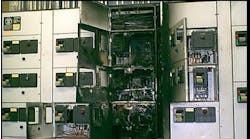We can run machines into the ground and replace them. When it comes to people, you don’t want to be doing this. When people are fatigued, you greatly increase the likelihood of outcomes such as these:
• Errors of judgment.
• Memory problems; forgetting things that are pretty important.
• Inattentiveness.
• “Stupid” mistakes.
• Unsafe behaviors and carelessness.
• Lower productivity, both because of increased rework and decreased work speed.
Watch for signs of fatigue, including:
• An increase in any of the outcomes above.
• Irritability.
• Frequent yawning.
• Red eye.
• Low energy.
• A sense of dissatisfaction.
If you’re short a person (or more) or overloaded on projects, it may seem sensible to just have your available people work more hours to fill the gap. But this isn’t sustainable, and at some point it will make you fall even further behind than “working a straight 40.”
To reduce the overload, you may have to just bite the bullet on projects of lesser importance. Burning out your people and taking your company down the path of bad work done unsafely really isn’t an option.
Here are some options to consider:
• Obviously, hire someone. If you can’t find a qualified electrician quickly enough, hire helpers who can handle support work that electricians are doing at the electrician burden rate. This can free up the electrician resource to a considerable extent.
• Contact your distributor about kitting. This can save several hours on even a small project.
• Contact a competitor and ask if they need work. Either subcontract something to them or ask if them to “loan” people they don’t have enough work for at the moment. Or hire them to do shop work like panel assembly for you, thus freeing up your people who were doing that.
• Look at how the work is being done and buy time-saving tools to improve productivity. Today’s power tools are vastly better than ones made even a few years ago.
• Streamline your work process. Do away with paper forms (in favor of electronic, e.g., smartphone-based) and reduce “paperwork” of all sorts as much as possible.
• Ask your people what things waste their time and fix or eliminate those things.
• Try to reschedule some work—offer a discount if need be. But don’t just not show up because you’re overloaded.





